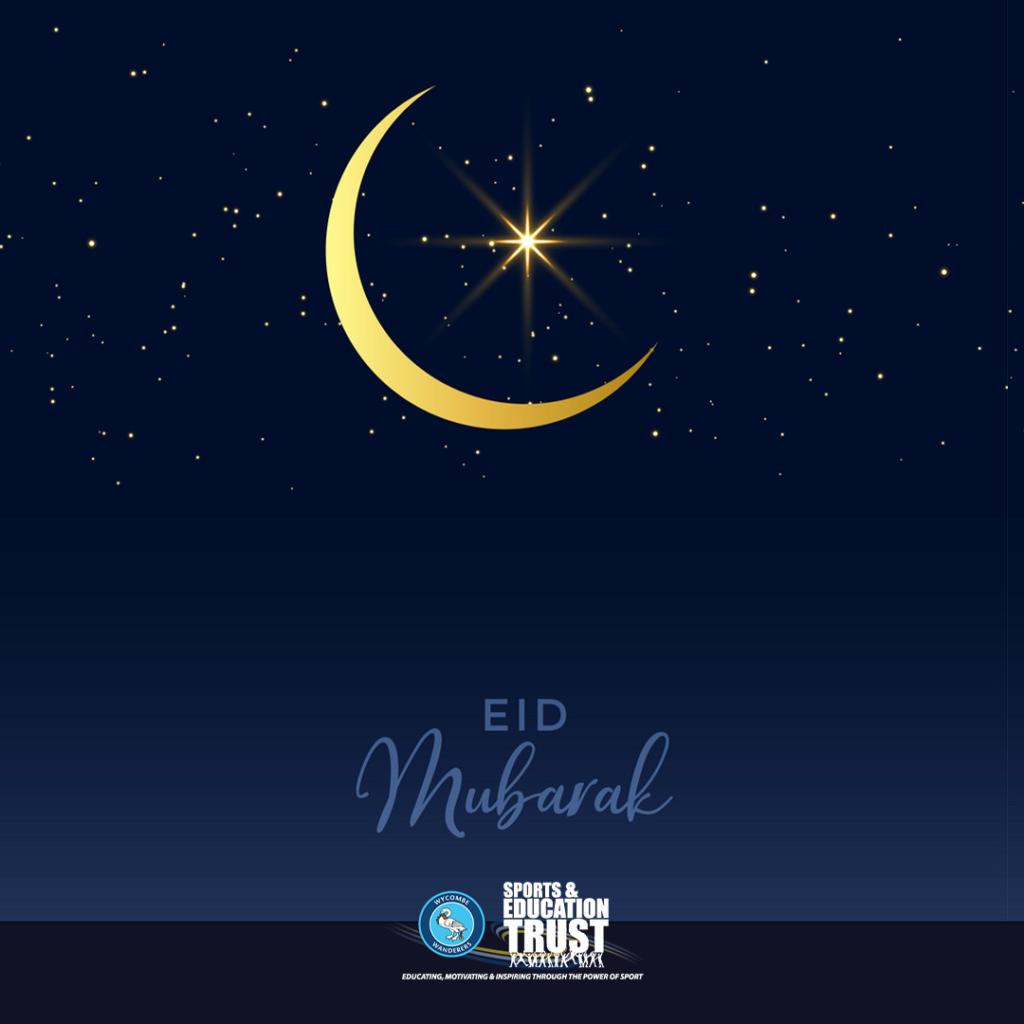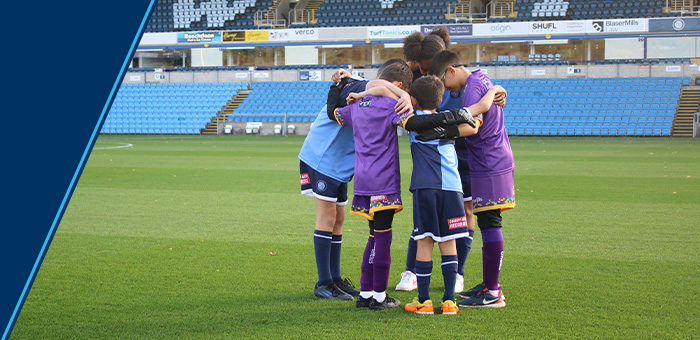Following the celebration of the end of Ramadan with Eid ul-Fitr in May, the second of the two major Muslim celebrations has now arrived in the UK and across the world – Eid ul-Adha. At Wycombe Wanderers Sports & Education Trust (WWSET), we want to take a look at what Eid al-Adha is, why Muslims around the world celebrate and ask how our Muslim friends will be celebrating the day.
Eid ul-Adha (‘Festival of Sacrifice’) is one of the most important festivals in the Muslim calendar and remembers the prophet Ibrahim’s willingness to sacrifice his son when God ordered him to. Often known as ‘Big Eid’, Eid ul-Adha falls on the tenth day of the Islamic Lunar Calendar’s twelfth month, Dhu al-Hijjah. The month is the most significant one in the Islamic Lunar Calendar, as the final month in the calendar and one which, as the ‘month of the pilgrimage’, includes the Hajj pilgrimage which sees Muslims from across the world journey to Saudi Arabia to worship at Makkah.
Eid ul-Adha celebrates the time when Ibrahim had a dream which he believed was a message from Allah asking him to sacrifice his son Isma’il as an act of obedience to God. The devil had tempted Ibrahim by saying he should disobey Allah and spare his son. When Ibrahim brought the sharp knife down to cut his son’s neck, the sharp edge of the knife turned. Allah, in His infinite mercy, had stopped the sacrifice, pleased with Ibrahim’s unquestioning faith. The boy was released, and a ram provided by angels was sacrificed instead. In some countries, Muslims to this day sacrifice a sheep or goat and the meat is shared equally between family, friends and the poor.
Eid usually starts with Muslims going to the Mosque for prayers. They dress in their best clothes and thank Allah for all the blessings they have received. It is a time when they visit family and friends. Muslims will also give money to charity so that poor people can celebrate too. After the coronavirus restrictions across the UK led to the celebration of Eid ul-Fitr in much more low-key circumstances for the second year in a row, the excitement for Eid ul-Adha is huge as restrictions are eased across the UK.
Muslims celebrate Eid ul-Adha on the last day of the Hajj. The Hajj is a pilgrimage to Makkah in Saudi Arabia. It occurs every year and is the Fifth Pillar of Islam (and therefore very important). During the Hajj the pilgrims perform acts of worship and renew their faith and sense of purpose in the world. They stand before the Ka’bah, a shrine built by Ibrahim, and praise Allah together. Every year around 2 million Muslims from all over the world visit Makkah for Hajj.
We spoke to Roz, one of our friends over at Seerah Today, a High Wycombe based charity whose purpose is to develop a better understanding of Islam for both Muslims and people outside the Muslim community for the benefit of community cohesion. We worked alongside Seerah Today to fast during Ramadan back in April and have enjoyed a positive relationship since.
She said: “I am celebrating Eid on Wednesday, following the principle of physically seeing the moon of the new month to know that it has come. This year I am helping at Micklefield Mosque and we are encouraging women and families to come to Eid celebrations for the first time! We will decorate on Tuesday evening and go down to the mosque early to set up. Prayer will begin at 9:00 am and then we will have a sermon and some mingling with ice cream!”
She continued: “Tuesday represents the day of Arafat, which symbolises the cleansing of the soul from bad deeds. It is a day for seeking forgiveness. Many Muslims will fast this day and I am intending to do so too. Seerah Today also manage Qurbani sacrifices abroad and so on Eid, we will be in communication with our team in Pakistan to make sure that all is going well and to communicate back to our donors as well. In the afternoon, we are hoping to have a BBQ and have invited some of our non- Muslim friends especially as my friend’s 7-year-old son is really interested in Islam and wants to ask about it and join us in prayer.’


